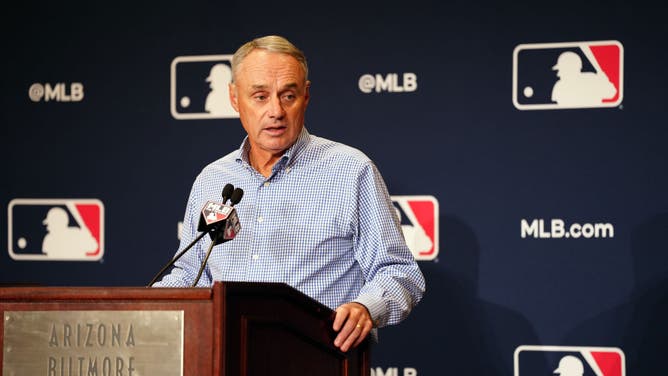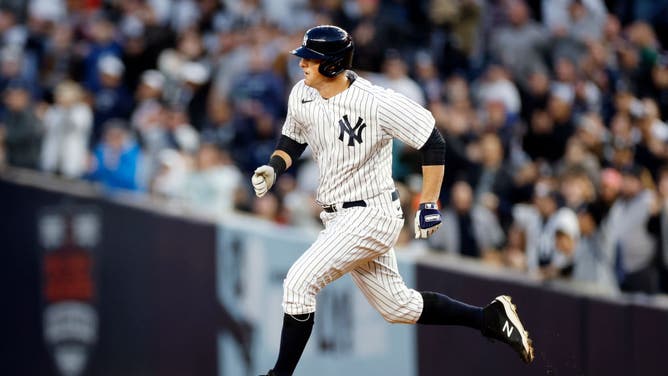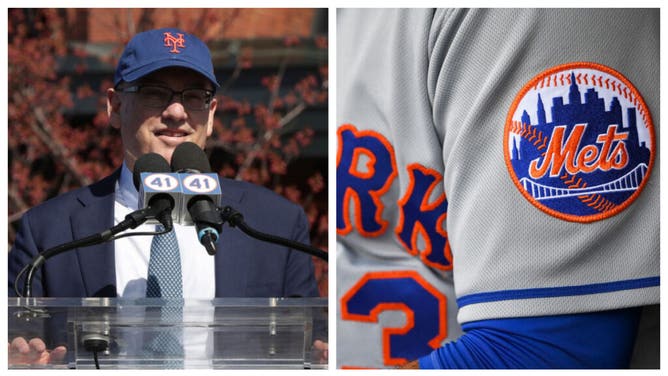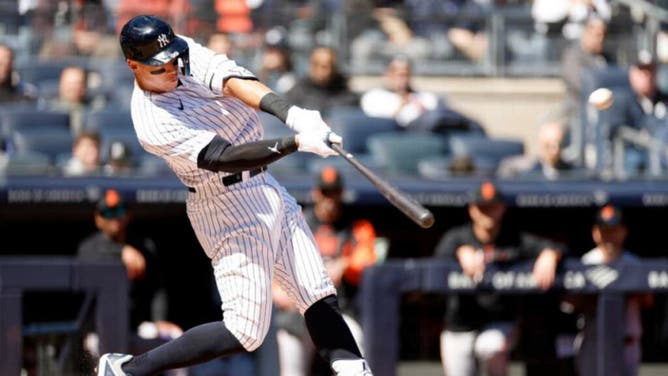MLB Commish Rob Manfred Talks New Rules - Will There Be Changes?
After one week of the regular season, Major League Baseball Commissioner Rob Manfred is head over heels about how baseball's new rules are changing the game.
Appearing on ESPN New York's The Michael Kay Show, Manfred was asked a variety of questions that many baseball fans have been wondering regarding the rollout of the new rules and what changes - if any, may happen.
You can listen to the full interview here.

MLB Commissioner Rob Manfred discussed the new MLB rules. (Photo by Daniel Shirey/MLB Photos via Getty Images)
NEW RULES ARE WORKING
Commissioner Manfred said that he's "not shocked," that fans are for the most part receptive to the new rules. "It has worked as we intended and consistent with what we saw during the 18,000 games that we used these rules for in the Minor Leagues," expressed Manfred.
He detailed the different research groups that MLB uses to get a feeling of what baseball fans truly want. Manfred also didn't shy away about the league realizing that there is a difference between the older and younger fans but stressed the "importance of capturing the next generation ."
Regarding players that may not enjoy the new rules, Manfred said that he is going to visit every ballclub this season and speak with the teams and players to get a sense of what they want. Ultimately however, he said that it's "about the fans" and that is what everyone in the sports needs to understand.
WILL RULES CHANGE DURING POSTSEASON?
Manfred didn't bite when asked about some fans wanting the rules to change once the postseason starts simply because the importance of the games.
"I have to tell you, we're pretty comfortable with where we are. Playing under different rules in the postseason has never been a preferred route for me," Manfred said.

Baseball has been off to a hot start with the new MLB rule changes. (Photo by Sarah Stier/Getty Images)
GHOST RUNNERS
Originally some of the rule changes were divisive. However, I feel that fans are slowly adapting to them - especially the pitch-clock (that is, until they lose an important game because of a 9th inning infraction).
One change I've argued for however is the ghost runners that automatically start in the 10th inning, should start later.
Surprisingly, Manfred was willing to discuss ideas like that with the MLB Players Association.
"I am hopeful that the new Joint Competition Committee that we have under the new basic agreement will put us in a position to discuss," Manfred said approvingly. "One of the things when I am done I hope baseball is a little more capable of change and adjustment more like other sports are... and I think is the kind of adjustment that we should talk about with the Committee."

New York Mets owner Steve Cohen is spending big money in hopes of a World Series Championship this year. (Getty Images)
STEVE COHEN AND BIG SPENDERS
When Michael Kay asked Manfred if it frustrates him that MLB is the only major sport to not have a salary cap, Manfred dodged the question a bit.
Manfred responded while chuckling, "It really doesn't frustrate me... we do it a different way ." "I'm not wedded to any particular outcome in terms of how we address the issues we have. I do think each and every time we bargain we should do our damndest - and I don't mean the owners and Commissioner's Office, I mean the MLBPA as well that we... produce a system that allows fans in all 30 of our markets to have hope every hear," he said.
Regarding the giant disparity between owners like New York Mets billionaire Steve Cohen who has a $360+ million payroll this year, and the Oakland Athletics with just $43 million, Manfred spoke about the importance of having a competitive environment. "We sell competition... the game is only as good as its ability to have 30 markets on some regular basis everyone feels like they have a way to compete."
"I've said it to Steve publicly and privately...that I have no problem ," Manfred began. "What Steve did in the winter time, there are benefits of it... He generated excitement in Queens, that's a great thing for our sport."

Aaron Judge is looking to continue his massive home-run streak from last season. (Getty Images)
The interview itself is a really solid back and forth, and props to Manfred for actually answering questions.
Baseball knows it is struggling with fan reception and growth. One way to improve that is to address their concerns and be as open and transparent as possible, especially when changes are taking place like the new rules.
Something that NBA Commissioner Adam Silver isn't.